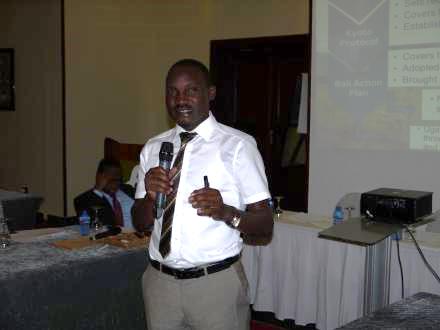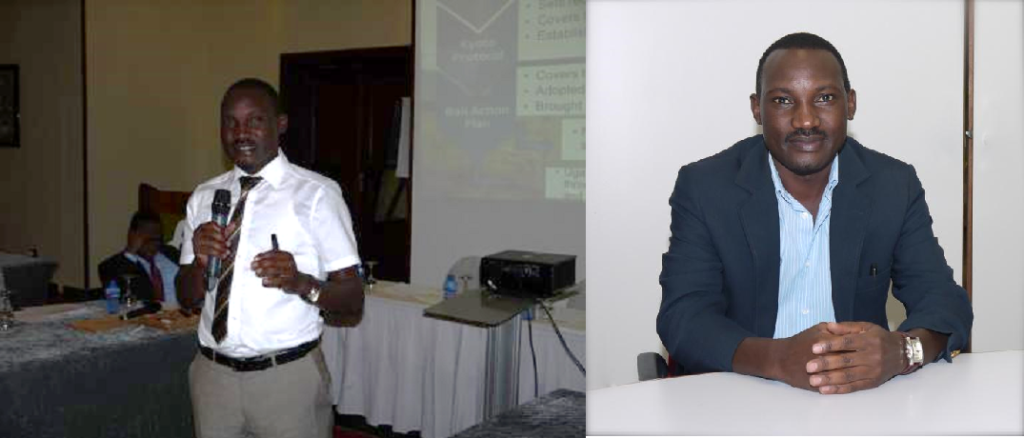Mr. Bob Natifu, Principal Climate Change Officer Outreach with the Ministry of Water and Environment of Uganda and UN CC:Learn ambassador for climate change learning, participated in the meetings organized as part of the official launch of the UN CC:Learn project activities in Ghana in August 2015. He shares with us his experience as an ambassador.

Mr.Bob Natif
In June 2013, the Government of Uganda launched the National Strategy to strengthen human resources, learning and skills development in Uganda to advance green, low emission and climate resilient development.
The approach to the development of the strategy was participatory and ensured contributions from key ministries, departments and agencies including civil society organizations, and above all national ownership of the project.
From then on, the Government has registered progress toward implementation of some of the actions in the short term with methodological support from UN CC:Learn.
Against that background, I took part in a UN CC:Learn mission in Accra, Ghana to give the context and share insights into the strategy development process, challenges and lessons learnt.
An important aspect of the strategy development is to assess learning needs as well as capacities to deliver learning through questionnaires and surveys. The analysis of institutional and individual capacity needs underpins the identification of specific priority actions.
At the initial meetings at the Ministry of Environment, Science, Technology and Innovation (MESTI) of Ghana, with most of the directors, I was struck by the fact that the high-profile government officials engaged in the discussions are all forward-looking and much impressed about the project. The expectations are high and meeting these expectations will create enthusiasm in taking forward this critical agenda. The National Climate Change Learning Strategy will actually be an important piece of Ghana’s national climate change response and will support Ghana’s Intended Nationally Determined Contribution (INDC).
Methodological support by UN CC:Learn and UNDP in the partner countries is impressive. It lays the ground work and gives the quick wins onto how the work can be done by the country. However, in my experience, as the old adage goes: “It’s your road and yours alone. Others may walk it with you. But no one can walk it for you!”
Ultimately, the onus is on us to ensure we take advantage of walking along with development partners to identify the capacity gaps (both individuals and institutions) and further implement those actions, if we are to achieve the green low emission development pathways in the face of climate change.
It was my first time in the former gold cost – but certainly not the last – I wish to come back next time to explore in the earnest hope that the strategy shall be finished and explore more of the national food, such as fufu, egussi, Ankara and okra.
To learn more about the National Planning Workshop in Ghana please visit: http://www.uncclearn.org/news/strengthening-education-and-training-support-ghanas-ambitious-climate-change-response
About the UN CC:Learn Ambassadors
Ambassadors for Climate Change Learning are individuals that have played a key role in the national UN CC:Learn pilot projects and are motivated to share their technical knowledge and experiences with new partner countries on a bilateral or regional basis. They also contribute to strengthening the global visibility and recognition of the UN CC:Learn partnership. For further information on the Ambassadors, please visit the following page: http://uncclearn.org/ambassadors. Follow our Ambassadors on Facebook and Twitter: #OurAmbassadors

